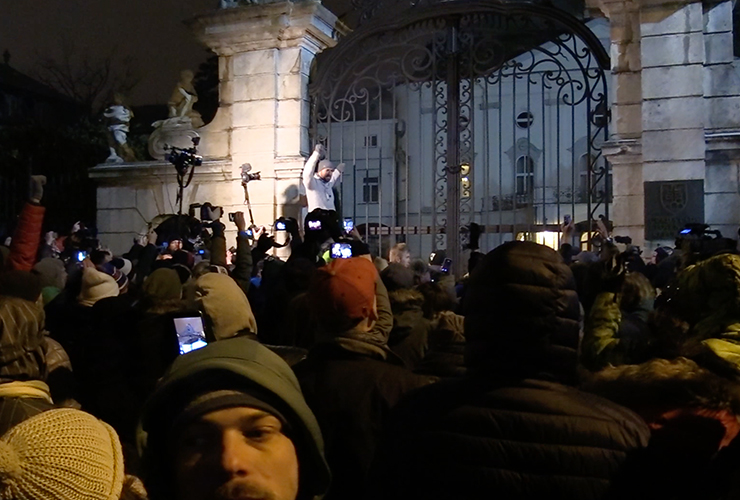The International Press Institute (IPI), a global network of editors, media executives and leading journalists for press freedom, today condemned a series of online attacks and smear attempts on women journalists in Slovakia by public officials linked to the ruling Smer – SD party.
Though abusive online messages targeting prominent female journalists have become a constant in Slovakia in recent years, “it has become more intense in the recent months ahead of national elections, due in February next year”, Beata Balogová, a member of IPI’s Executive Board and editor-in-chief of the Slovak daily SME, commented.
In a recent case, Ľuboš Blaha, the head of the foreign affairs committee in the Slovak Parliament who is running for reelection on the Smer – SD party list, posted a text on his Facebook page suggesting that Zuzana Hanzelová, former TV news anchor and current SME journalist, regularly forgets to take a potent anti-depression medicine before going live on TV. The post – which included a picture of the journalist – gained more than 4,000 likes, almost 600 shares and ignited an avalanche of around 400 comments from Blaha’s followers, most of them insults against Hanzelová.
Similarly, an earlier post on Blaha‘s Facebook page against investigative journalist Monika Tódová from the newspaper Denník N, fuelled an equally abusive wave of comments. In the post Blaha wondered when Tódová would publish “a filthy video” from her bedroom.
Tódová has been publishing articles about the course of the investigation into the murder of journalist Ján Kuciak and his fiancée, Martina Kušnírova, including materials that reveal connections between the alleged mastermind of the murder, Marian Kočner, and some Smer party officials. Most recently, she published a video showing a former Smer finance minister in a compromising conversation with the former prosecutor general discussing corruption schemes linked to the ruling party and its partners. Blaha’s attack came on the heels of this video.
“[Blaha’s] constant personal attacks worsen the online abuse against journalists as well as legitimize this type of primitive discourse“, Balogová explained, and expressed concern over the physical safety of her colleagues given that “this aggressive campaign indeed might inspire people to attack these female journalists”.
“Online harassment against prominent women journalists, including in this case, aims to diminish journalists’ work in the eyes of the public”, IPI Executive Director Barbara Trionfi said. “Such attacks and abuse are unacceptable for a lawmaker in a democratic country and endanger the safety of the targets. They also send a chilling message to other women journalists and ultimately risk the self-censoring of diverse voices.”
However, the continued harassment of female journalists goes beyond their gender and aims to undermine their credibility as journalists. Additional posts from Blaha have portrayed journalists as “blackmailers, secret service or political agents” and suggested that the truth can only be found on social media, claiming that the journalists he targets work for media outlets owned by economic powers bent on destroying Slovakia and its traditional values.
These types of attacks on journalistic credibility are not limited to Slovakia’s populist leaders. In fact, they can be found mirrored by populist politicians in the region such as in Austria and Czech Republic, as IPI reports have noted.
In Slovakia, online attacks against women journalists and the work of independent media are taking place at a time of political upheaval. The murder of Kuciak and Kušnírová in February 2018 sparked the biggest civil protests since the Velvet Revolution in 1989 and forced long-term Prime Minister Robert Fico to resign a few weeks later, though Fico’s Smer – SD party remains in power. General elections are set for February 2020.
Since 2014, the International Press Institute (IPI) has been systematically researching online harassment as a new form of silencing critical, independent media. Our work has unveiled patterns of online attacks, analysed the emotional and professional impact on journalists, and collected best practices for newsrooms to address the phenomenon.



